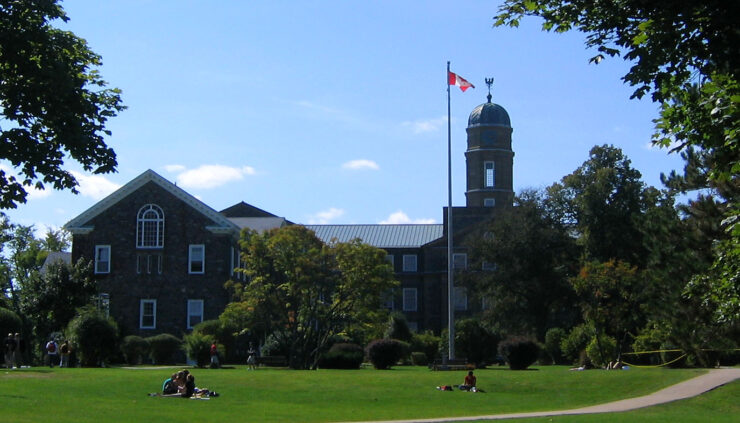Photo by Tom Flemming/Creative Commons
HALIFAX (CUP) — A hurtful “media fire” concocted by journalists and activists is forcing the victims of the Dalhousie Dentistry scandal into silence, according to a statement from the women involved in an ongoing and controversial “restorative justice” process.
“Many people (some with good intentions) have spoken about us and in the process often attempted to speak for us in ways that we have experienced as harmful, silencing and re-traumatizing,” the women wrote in the anonymous statement issued earlier this month.
The women’s statement accompanied one from 12 of their male classmates, still unnamed, who have returned to clinical duty despite remaining under investigation for violating professional standards.
The men were members of a misogynistic Facebook group that, among other things, polled members on which classmate they would most like to “hate-fuck” and made light of using chloroform to sexually assault patients.
Former member Ryan Millet reported the group to the university Dec. 8, and it was exposed in the media a week later.
Since then, Dalhousie has been accused of coercing the women involved to opt for a “restorative justice” process over formal complaints that might end in expulsions.
“We made this choice informed of all of the options available to us and came to our decision independently and without coercion,” the women wrote.
Four female faculty members mentioned in the posts were not included in the statement, however they opted out of restorative justice to pursue a formal complaint under the student code of conduct.
Dalhousie vice-provost Anne Forrestall dismissed the complaint in January on technical grounds, saying it was already under investigation by the Faculty of Dentistry’s academic standards class committee (ASCC).
The ASCC investigation can technically still end in expulsion, but the men’s return to clinic, a requirement for graduation, is a sign the ASCC is yielding to the restorative justice approach.
The decision came in the wake of a partial apology issued alongside the women’s statement.
“From the beginning of this process in December we felt incredibly remorseful and took ownership of what we did (individually and collectively),” the men wrote in their statement.
“We know much more than saying ‘sorry’ is required. We are doing the hard work to figure out how to truly be sorry.”
Some people remain unconvinced. Jude Ashburn, a coordinator at Halifax’s South House Sexual & Gender Resource Centre, said she believes the restorative justice process “has always been about restoring Dalhousie’s reputation.”
“We stand by the women who wanted (restorative justice), and we’re glad that they’re getting what they wanted and feel vindicated,” she said. “(But we also) stand strongly behind the four people who publicly told us they did not choose that process.”
Reports in the Dal Gazette, Halifax alt-weekly The Coast, and the Globe and Mail have criticized Dalhousie’s response on similar grounds, citing the university’s evasive attitude to media and its historical tendency to avoid formal charges in cases of sexual assault and harassment on campus.
Claims of systemic misogyny in the Faculty of Dentistry have already spurred an external investigation, led by Constance Backhouse of the University of Ottawa.
The administration also faces criticism on another front from Millet’s lawyers. Millet was the only one of his classmates to refuse to take part in the restorative justice process, and a disciplinary committee ruled that he must agree to submit to a similar regime of counselling and re-education if he wants to return to clinical work with his classmates.
Millet, whose activity in the group was limited to liking one post and who believes himself innocent of any misconduct, views the ruling as punishment for the “reputational harm” his exposure of the group caused to one of Dalhousie’s most cherished faculties.
While the ASCC has no deadline for its decision on the men’s conduct, Backhouse’s investigation is due to finish by the end of June.






